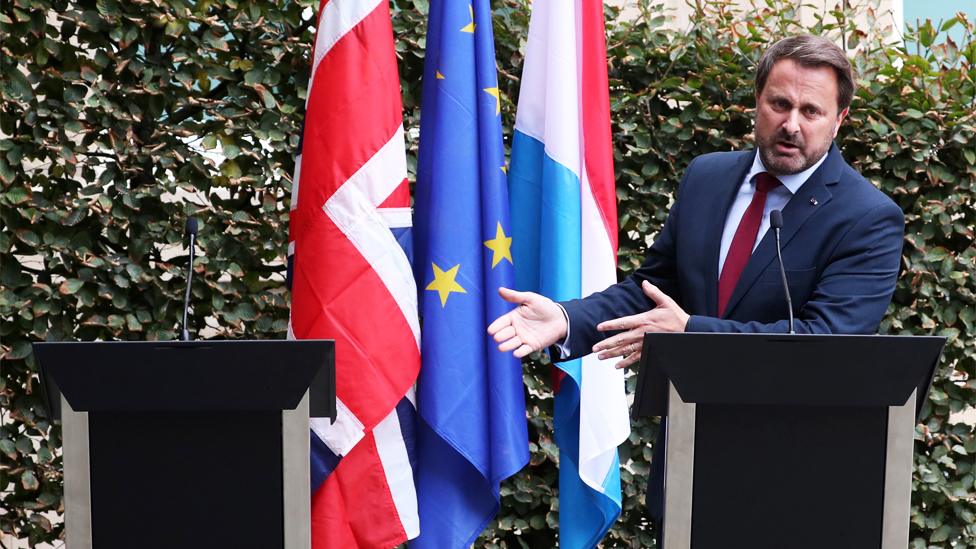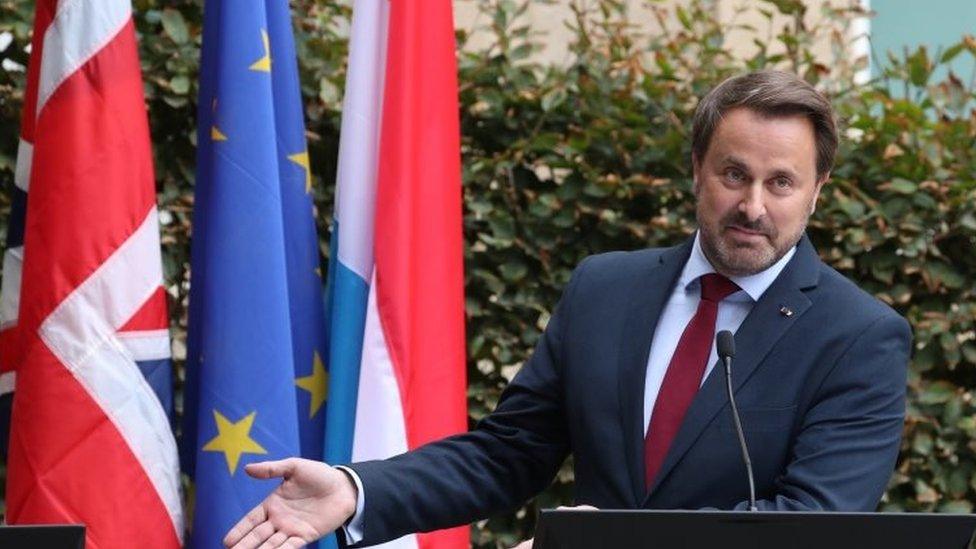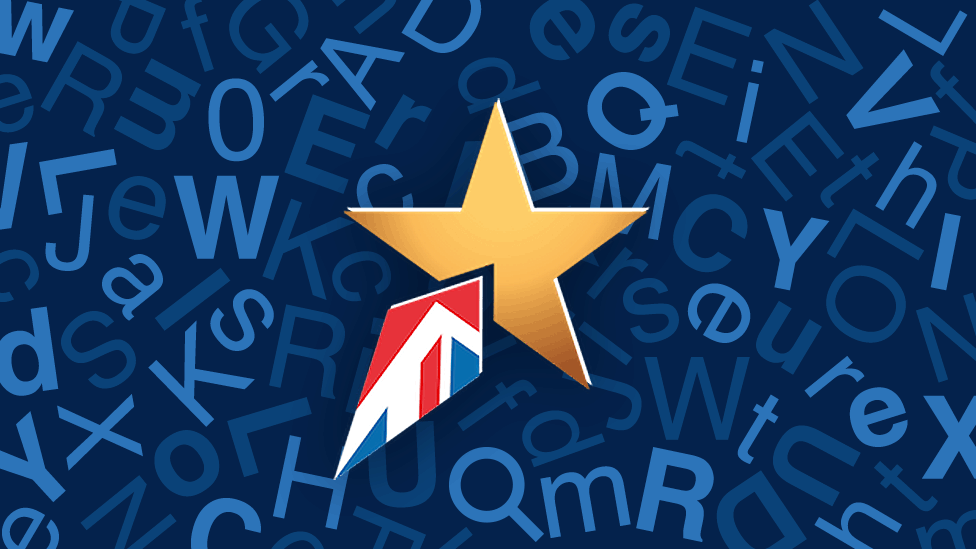Brexit: What does Luxembourg PM Xavier Bettel's scorn mean?
- Published
Luxembourg's PM spoke beside the empty podium where Boris Johnson was due to appear
What exactly should we make of the oh so public venting on Monday by the prime minister of Luxembourg following his meeting with Boris Johnson?
Does this mean the EU has lost patience and will no longer engage in negotiations with the Johnson government? Can we expect an Angela Merkel rant or a Mark Rutte rave next?
Quite the opposite.
"As long as there is a chance of a deal, it's in our own interest to engage. However frustrating negotiations are," a high-level EU contact told me.
"It's no secret the EU prefers an orderly Brexit. And if talks breaks down and end in no deal, we (the EU) won't be the ones to have closed the door in the UK's face. It's important that European voters know that."
That said, Prime Minister Bettel's effervescent irritation with the Brexit process is shared by most EU leaders behind closed doors. Frustration seems to seeps out of every pore sometimes in off-the-record conversations with EU diplomats and politicians.
Annoyance that more than three years after the UK referendum on EU membership, the country and parliament are still divided over what kind of Brexit - if any - to pursue. This means in EU eyes, they could perform any manner of contortions, make all sorts of compromises in a Brexit deal and still be unsure as to whether it would get through parliament.
Resentment that EU leaders are often depicted as the villains of Brexit by high-profile UK politicians and journalists while they insist they never wanted Brexit and now that it's happening it's damaging for the EU itself. Brexit uncertainty is very costly for EU businesses and European governments are spending hundreds of millions on preparing for a possible no deal outcome.
Exasperation that Boris Johnson insists on talking about great progress being made in negotiations with the EU, whereas Brussels insiders claim serious talks with the prime minister's main EU envoy David Frost only began on Friday and he has still not presented a concrete proposal on how to replace the backstop guarantee for the Irish border.
But most EU figures (bar a couple of well-known exceptions) think it politically prudent to hide any teeth-clenching and nostril-flaring in public.
Johnson: EU have had 'bellyful' of delays
Boris Johnson said on Monday he wanted to step up EU-UK Brexit contacts to daily meetings. Fine, responded the EU. European Commission President Jean-Claude Juncker repeated his assertion, previously made to Theresa May, that the EU was open for talk 24/7.
But it's important to remember that Mr Juncker and European Commission negotiators don't have the legal power to change the Brexit deal, even if they wanted to. That power lies with the EU national leaders.
And they are locked in a tussle of words and "alternative facts" with the UK prime minister.
Boris Johnson insists EU leaders must compromise if they really want a deal. They reply that Mr Johnson has yet to come up with any realistic proposals.
Suggesting, as the UK prime minister has, that Northern Ireland follow EU rules on animal, plant and food safety doesn't fly with the EU as an alternative to the backstop.
Confused by Brexit jargon? Reality Check unpacks the basics.
The EU wants to know what goods are entering its single market after Brexit. So what about customs?
The perceived patchy approach of the Johnson government - "Oh that'll work itself out. There's technology and trusted trader schemes" - is not acceptable to the EU.
"As long as UK proposals remain flabby and aspirational," one key EU diplomat put it to me, "Brussels is unlikely to budge."
The devil as always is in the detail. If the UK had specific, targeted requests for compromise on the backstop, the other EU leaders would look to Ireland and if Dublin gave the nod, the EU as a whole would most likely follow suit.
Equally, if Boris Johnson made a realistic request (from Brussels' point of view) on the backstop and Ireland were reluctant, then Dublin could well come under "gentle pressure" from other EU leaders to compromise.
But with no concrete, legally operable proposals from the UK at this stage, the pressure felt on Ireland the EU as a whole to "compromise" is "basically zero," my contacts tell me.
- Published16 September 2019

- Published16 September 2019

- Published11 December 2020

